This is the first of a four-part series on some of the best foreign-language films—at least according to two of our critics, foreign-film buffs Agnieszka Tennant and Stefan Ulstein. This installment examines the best films from Europe. Part 2, coming next week, will look at the best films from Asia; part 3, in two weeks, will examine the best films from the Middle East; and part 4, in three weeks, looks at the “best of the rest” of the world.
I cannot speak in generalities about movies from Europe. This diverse continent falls victim to enough stereotypes already. For example, we may think that the former Soviet Union chased out God from its territory and its art, or that French movies are risqué and shallow. Swedes are cold; Polaks are dumb; Serbs are ruthless.
But for every generalization about Europe and Europeans, there’s a movie that defies it. The directors of the films listed below do it masterfully, giving us remarkable lessons in complex sensibilities of the continent from which many of our ancestors—and some of us—came.
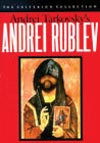
(Soviet Union, 1969)
Directed by Andrei TarkovskyA critically acclaimed epic that sheds light on what it means to be a Christian and an artist, Andrei Tarkovsky’s movie is based on the life of a medieval icon painter. Andrei Rublev traces its protagonist through a famine, a Tatar incursion, a “painter’s block,” a faith crisis, and finally his artistic restoration and a kind of redemption. The film itself is a visual magnum opus that celebrates beauty and art with such breathtaking intensity that one wonders if one could endure this movie had it not been in black-and-white.
Content: Depictions of nudity and sensuality. For mature audiences only.
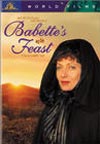
(Denmark, 1987)
Directed by Gabriel AxelIn Babette’s Feast, director Gabriel Axel serves up the most delicious cinematic portrayal of grace. The setting of the film—in the house of two old maidens who follow in the footsteps of their deceased father in leading an austere religious sect in a lackluster fishing village on Denmark’s Jutland peninsula—makes the lavishness of a feast prepared by a French cook even more surprising. The fact that only one person really appreciated the extravagant meal gives us a speculative insight into the mind of God, whose thoughtful gifts to us too often go underappreciated.
Unlike other food-centered movies (Like Water for Chocolate, Chocolat, Tortilla Soup), this one restrains its depictions of food, music, sensuality, beauty, and grace. Its humor and observations, too, are gentle and understated. That, too—like the self-control in enjoying a gourmet meal—is the secret of its power.
Content: No objectionable material, but its slow pace and dialogue may bore younger viewers.
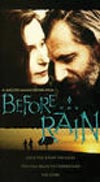
(Macedonia, 1994)
Directed by Milcho ManchevskiThis tense three-part drama showcases the way wartime derails people’s lives.
The first section takes place in a Macedonian monastery where a young monk, who has taken a two-year vow of silence, is hiding an Albanian girl toward whom he’s developing affection. The second segment introduces us to a photo editor in London who has an affair with a Macedonian war photographer. In the third part, the photographer returns to his home village in Macedonia (one we know from the first segment) and looks up a woman he once liked. The three stories are intriguingly and artfully interconnected as their characters mingle in the context of violence between Christian Macedonians and Albanian Muslims.
Content: Portrayals of nudity and violence make it suitable for mature viewers only.
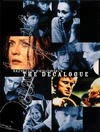
(Poland, 1987)
Directed by Krzysztof KieslowskiThe late great Polish director’s Decalogue stands for not one but ten enchanting films loosely corresponding to the Ten Commandments. Catholic but rarely churchgoing Krzysztof Kieslowski (also known for The Three Colors: Blue, White, Red) once said that the individual commandments influence each movie “to the same degree that the commandments influence our daily lives.” Consequently, some of the films relate to a given commandment almost incidentally, using it instead as an excuse for more complex, ethical debates. And all of the films speak from the particular landscape of Poland under communism to the universal questions we all have.
In Part 1 (“You shall not have other gods besides me”), a university professor introduces his son to a world in which everything can be calculated. But after his son goes ice skating—following the father’s estimate that the ice cover on the lake is thick enough to be safe—the world of professor’s self-reliance comes crumbling down. Maybe he needs something that cannot be measured: faith. Parts 2 and 8 speak against taking a child’s life, Parts 3, 6 and 9 deal with romantic love, which ultimately is “in the heart, not between the legs,” in the words of a Part 9 protagonist.
Content: Some parts are unsuitable for children (Part 6 especially, for sexuality); parents should watch them first before allowing their teenagers to see them. On the other hand, some of the films (particularly Parts 1, 2 and 8) are good fodder for Sunday school discussion:
(For more on Decalogue, see my full review in Christianity Today magazine.)
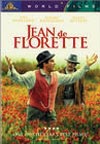
Jean de Florette and Manon of the Spring
(France, 1986)
Directed by Claude BerriThe 1986 French film and its sequel is an enthrallingly told tale of corruption and the way it tends to eventually turn on its plotters. Based on two novels by French writer Marcel Pagnol, Jean de Florette and its worthy sequel Manon of the Spring have been compared to Greek and Shakespearean tragedies.

As do all tragedies, this one begins with a legitimate desire: in this case, one for water—the water whose source is hidden on the property inherited by a hunchback (played robustly by Gerard Depardieu) who settles on the farm near Marseilles. Greed leads his neighbors to secretly plug his stream and, eventually, to destroy him—something that his beautiful daughter, Manon, will not forget when she grows up, as we learn in the second movie.
Content: Both films are rated PG. Jean de Florette contains one scene of nudity; Manon’s violence may be unsuitable for young children.
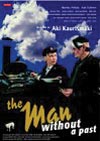
(Finland, 2002)
Directed by Aki KaurismakiDry, understated humor, bursts of human warmth, and superb sound track in The Man Without a Past are bound to make anyone feel good after watching this movie.
The title character gets mugged and is left for dead when he gets off the train in Helsinki. When he wakes up in a hospital, he doesn’t remember who he is. As with other “amnesia movies,” the protagonist gets a chance to start from scratch. This one begins his new life in a cargo container, like other homeless people. A Salvation Army employee who helps him put his life together looks past his current social status and into his heart.
Content: Rated PG-13 for graphic violence and profanity.
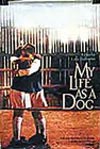
(Sweden, 1985)
Directed by Lasse HallströmMy Life as a Dog is a sensitive look at a curious boy with a lot on his mind. Besides puberty, 12-year-old Ingemar Johansson has to deal with his mother’s dying of tuberculosis, his father’s abandonment, a displacement that separates him from his brother, and the death of his dog.
Like the French Ponette on this list (see below), this movie doesn’t patronize its young protagonist and other children, respecting their understanding of the confusing adult world. Ingemar’s questions mirror to us the consequences of our adult decisions. For example, he wonders, what was so great about sending Laika into space so it can be the first dog there? The dog’s subsequent death from starvation? This and other bittersweet insights make the 1987 Swedish release worth our time to reflect on the Ingemar in the youngsters around us—and the Ingemar who resides inside each of us.
Content: Rated PG-13, the film contains scenes of teen sex play and profanities.
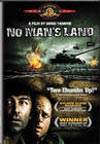
(Bosnia, 2001)
Directed by Danis TanovicSet during the Bosnian war in the beginning of the 1990s, this film is a humanizing look at those who fight war literally in the trenches, and at the stuck-in-the-middle UN observers.
In a trench on “no man’s land”—neither Serbian nor Bosnian territory—a Serbian soldier and a Bosnian one have a smoke together and realize that they have dated the same woman. You sense that in another time, another place, they could be friends. But not now; now they have to wait for relief from either Bosnian or Serbian soldiers.
Tension intensifies when a so-far unconscious Bosnian soldier wakes up to a nightmarish reality: he mustn’t budge because he’s lying on a landmine that will explode if he moves. His predicament becomes symbolic of the military conflict. After the men signal for help to their units and to the UN troops, a UN sergeant disobeys an order and arrives at the trench in a tank, hoping he can actually do something to help. The situation becomes more complex when a TV reporter also wants to help and becomes part of the story.
Content: Rated R for violence and language.
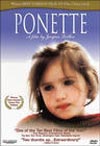
(France, 1996)
Directed by Jacques DoillonThe 4-year-old Victoire Thivisol, who for this role received the Best Actress award at the Venice Film Festival, convincingly renders this profound study of a child’s mourning of her mother’s sudden death. The stages of her honest grief aren’t that far removed from an adult’s: First, she waits for her mom to come back. She’s angry when that doesn’t happen. She consults her friends as she attempts to figure out what God had to do with her mother’s disappearance. The children’s interpretations of adult matters are sometimes hilarious and sometimes poignant, likely to influence the way adult viewers of this movie will talk to children.
Content: Because of the gravity of the film’s subject, children shouldn’t watch it unaccompanied by adults. It might help a child process a death of a loved one, but it must be followed by conversation.
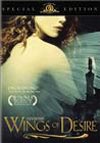
(Germany, 1987)
Directed by Wim WendersShowing us the world through the eyes of angels, great German director Wim Wenders expands our spiritual imagination, strengthens our empathy, and infuses us with hope about the world we live in. He introduces us to two angels, one of whom is not satisfied with his assigned role as a chronicler of God’s grace and a mere observer of human thoughts, dreams, hopes, and fears. The ordinary pleasures—be it free will or tasting good coffee—that come with being human appeal to him more and more. After he falls in love with a beautiful trapeze artist and gets a talk from Peter Falk, cast as himself, on being human, he decides to get rid of his wings.
Content: Rated PG-13, the movie contains brief nudity. Suitable for mature young teens and older.
Next week: The Top Ten Asian films.
Copyright © 2004 Christianity Today. Click for reprint information.



















